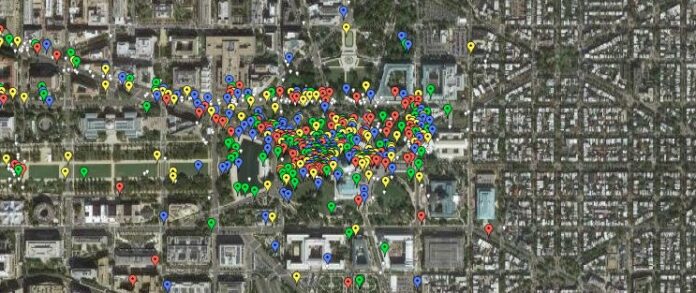The January 6 Committee has collected – and is now hoarding – vast amounts of information that the public has a right and a need to see.
The committee’s hearings have been carefully produced for maximum dramatic effect. They’ve been short, highly edited, meticulous, and to the point. They masterfully wove a gripping, tension-filled narrative complete with big reveals. So kudos for that.
But when you produce something so tightly, you leave a lot of compelling material on the cutting-room floor – because it doesn’t quite fit, it distracts, it’s just a bit too speculative, or there simply isn’t enough time.
That underlying material the committee has collected, through interviews and document requests – some of them involuntary – is incredibly vast. There are literally millions of pages of documents and countless hour of video. They inevitably contain evidence all sorts of important, outrageous, arguably criminal conduct that didn’t make the final cut, but is nevertheless essential for the public to see and judge.
The good news is that at least one committee member has said the committee intends to make it all public after the final hearing. Which, if you took him literally, would be now.
As I’ve previously reported, Rep. Adam Schiff told MSNBC’s Rachel Maddow on June 9
The real challenge for our committee, frankly is, how do we choose what is most important to share with the public? And I think that what we will try to do is make available in these hearings as much as we can, and then provide in online resources for others, a wealth of other material for you and other members of the press, and public, to scrutinize.
Schiff also told MSNBC’s Joy Reid, on June 21:
Well, you know, in terms of the process, as you might imagine, there`s a volume of evidence, a mountain of evidence to try to communicate through each of these hearings which, you know, are only lasting between two and three hours. And so, we have to kind of ruthlessly say what`s most important to convey to the public and that means a lot, hits the cutting room floor.
Now, ultimately, we intend to open up and release our files and let the public know the much bigger volume of what we have obtained. I can`t tell you exactly when that`s going to happen but we do intend to share a lot that we couldn`t cover in these hearings.
But yes, some very difficult decisions are made with each of these hearings. What is most important knowing that we can`t convey at all or even more than a small fraction.
I have repeatedly asked committee staff about their timetable for releasing the material, and they have ghosted me.
The committee is obviously not totally averse to releasing material outside of the hearings. Select dribs and drabs have been leaked to favored reporters now and again over the last few months.
But every day counts. We can’t wait until the committee releases its final report – most likely in December.
What we need right now is for journalists to start combing through it all. And not just traditional journalists either.
Searching through the amount of evidence involved here to find the most valuable bits will require a small army of citizen journalists – much like the ones Talking Points Memo gathered to sift through documents related to the George W. Bush-era U.S. Attorney scandal of 2007, or that the Guardian organized to dig through thousands of expense receipts from members of Parliament in 2009.
Whatever news outfit offers citizens the first and/or best way for citizens to organize, annotate, highlight, and submit key facts from the supporting material will earn a lot of attention, and for good reason.
I have to wonder why the committee would even think about holding the material until after the election.
As John Nichols wrote for the Nation, the GOP-fueled insurrection should absolutely be a campaign issue, framed exactly the way Liz Cheney has framed it: “We all have to understand that we cannot give people power who have told us that they will not honor elections.”
